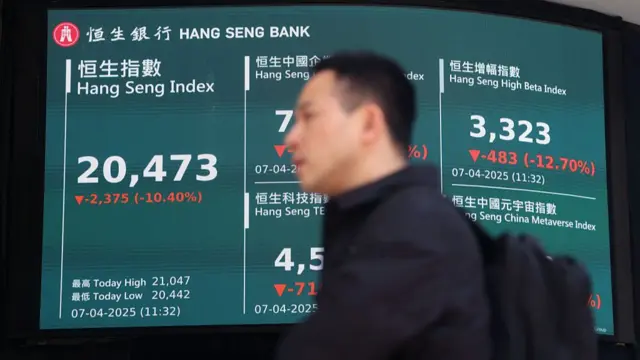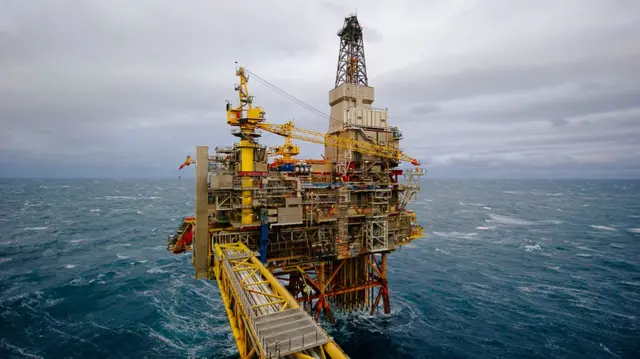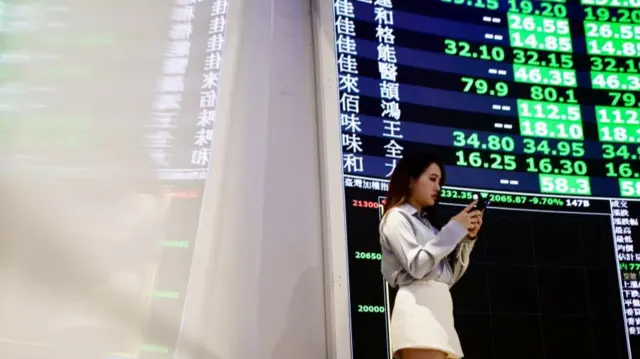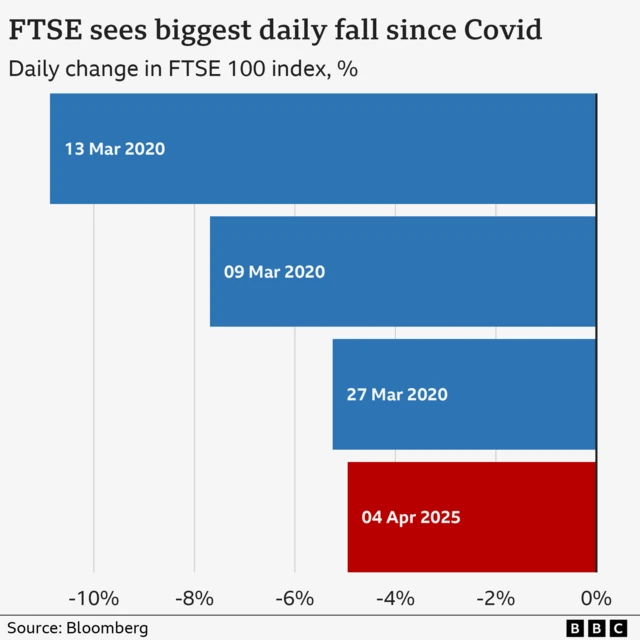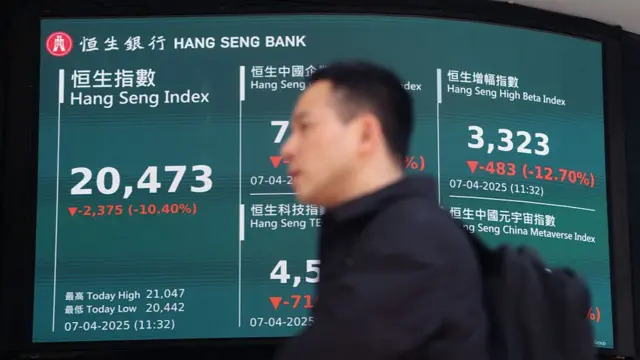This could get worse, warns incoming German chancellorpublished at 10:51 British Summer Time
 Image source, Getty Images
Image source, Getty ImagesGermany's incoming chancellor, Friedrich Merz, warns that the stock market slumps could get worse.
"The situation on the international equity and bond markets is dramatic and threatens to deteriorate further," he tells the news agency Reuters.
Along with other European Union countries, Germany faces 25% tariffs on steel, aluminium and cars going into the US, as well as "reciprocal" tariffs on other goods of 20%.
The chancellor-in-waiting says it is "more urgent than ever" for Germany to find ways to compete internationally.



